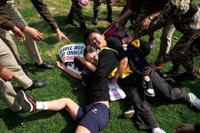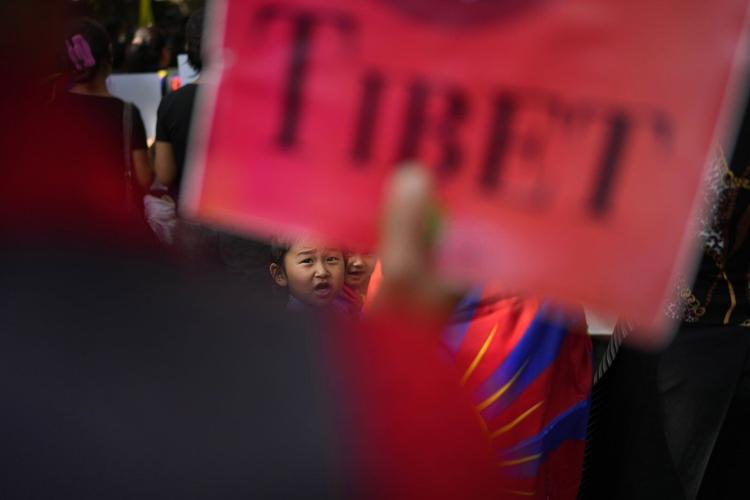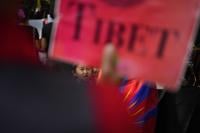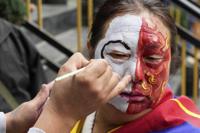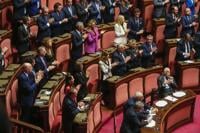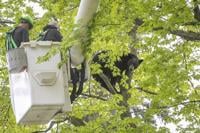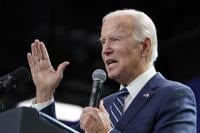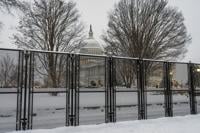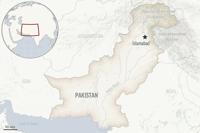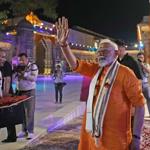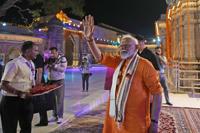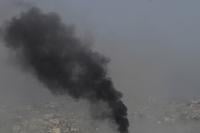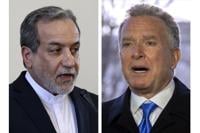NEW DELHI (AP) — Dozens of Tibetan protesters clashed with police outside the Chinese Embassy in New Delhi on Monday as Tibetans living in exile marked the 66th anniversary of their uprising against China that was crushed by Chinese forces.
As in past years, police blocked the protesters from entering the embassy and briefly detained some of them after wrestling them to the ground.
Hundreds also marched in the north Indian town of , the seat of the exiled Tibetan government and home of , their 89-year-old spiritual leader. Separately, about a hundred Tibetan women gathered at Jantar Mantar in New Delhi, an area designated for protests close to Parliament.
The protesters shouted anti-China slogans, carried Tibetan flags and played the national anthems of and India.
India considers Tibet to be part of China, although it hosts the Tibetan exiles. The 1959 independence uprising was quelled by the Chinese army, forcing Dalai Lama and his followers into exile in India.
Many had their faces painted in colors of the Tibetan national flag. The demonstrators observed a minute of silence to remember Tibetans who lost their lives in the struggle against China. Monks, activists, nuns and schoolchildren marched across the town with banners reading, “Free Tibet” and “Remember, Resist, Return.”
Penpa Tsering — the president of the Central Tibetan Administration, as the exiled Tibetan government calls itself — accused China's leadership of carrying out a "deliberate and dangerous strategy to eliminate the very identity of the Tibetan people.”
“This marks the darkest and most critical period in the history of Tibet," Tsering told the gathering. “As we commemorate the Tibetan ��ɫֱ�� Uprising Day, we honor our brave martyrs, and express solidarity with our brothers and sisters inside Tibet who continue to languish under the oppressive Chinese government.”
The Tibetan government-in-exile in India accuses China of denying the most fundamental human rights to people in Tibet and trying to expunge the Tibetan identity.
China claims Tibet has been part of its territory for centuries, but the Tibetans say the Himalayan region was virtually independent until China occupied it in 1950.
The Dalai Lama denies China’s claim that he is a separatist and says he only advocates substantial autonomy and protection of Tibet’s native Buddhist culture.
___
Bhatia reported from Dharamshala, India.


